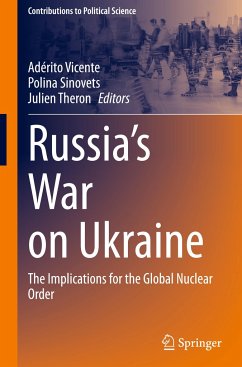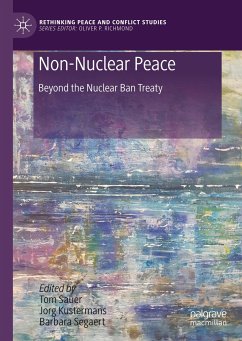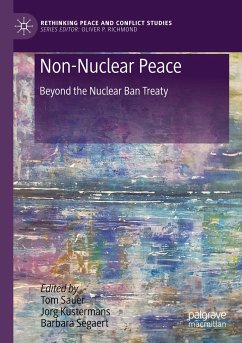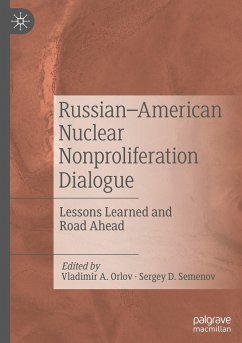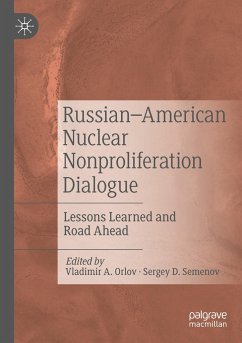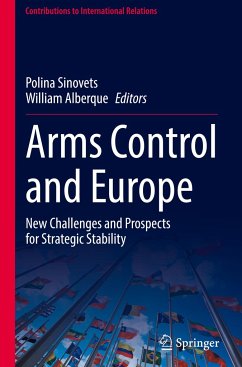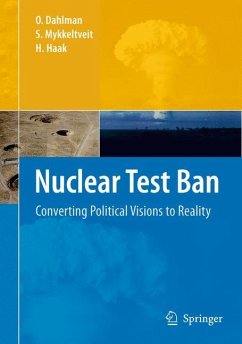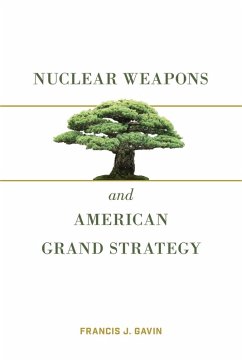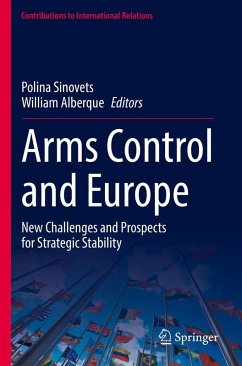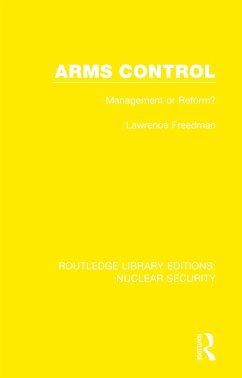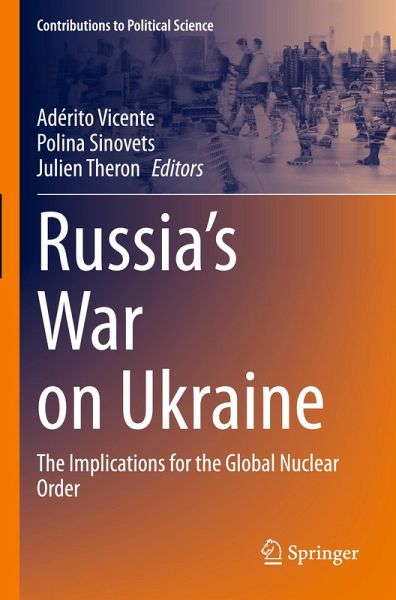
Russia's War on Ukraine
The Implications for the Global Nuclear Order
Herausgegeben: Vicente, Adérito; Sinovets, Polina; Theron, Julien
Versandkostenfrei!
Versandfertig in 6-10 Tagen
98,99 €
inkl. MwSt.

PAYBACK Punkte
49 °P sammeln!
This book explores how Russia's War on Ukraine has changed the global nuclear order. The Russian aggression against Ukraine questioned the values of the liberal regimes and systems upon which the global nuclear order is built. At the heart of this nuclear order lies the 1968 Treaty on the Non-Proliferation of Nuclear Weapons (NPT), which remains until today the cornerstone of the global nuclear disarmament and nonproliferation regime.In this context, the book examines new challenges and threats to the global nuclear order. It discusses the deterioration of nuclear norms, as well as the increas...
This book explores how Russia's War on Ukraine has changed the global nuclear order. The Russian aggression against Ukraine questioned the values of the liberal regimes and systems upon which the global nuclear order is built. At the heart of this nuclear order lies the 1968 Treaty on the Non-Proliferation of Nuclear Weapons (NPT), which remains until today the cornerstone of the global nuclear disarmament and nonproliferation regime.
In this context, the book examines new challenges and threats to the global nuclear order. It discusses the deterioration of nuclear norms, as well as the increasing number of the states further challenging the NPT regime by attempts to develop nuclear weapons. The book further sheds light on a growing number of states trying to resolve their territorial claims using the nuclear coercion and the umbrella function of their nuclear arsenals. The authors present the loopholes in the existing arms control system and the arms trade, which became obvious in the course of the war, and analyze the further split between the supporters of the NPT and the Treaty on the Prohibition of Nuclear Weapons (TPNW). Srutinizing the deepening polarization of the supporters and the opponents of nuclear weapons, the book includes a new debate about the competing narratives on nuclear deterrence and disarmament. Finally, the volume discusses the development and the increase of new missiles and disruptive technologies such as hypersonic missiles, drones, and artificial intelligence.
This book will appeal to students and scholars of international relations and political science in general, and security studies, military and defense studies, peace and conflict studies, and foreign policy in particular, as well as policy-makers interested in a better understanding of nuclear deterrence, the global nuclear order, and the impact of Russia's war on Ukraine.
In this context, the book examines new challenges and threats to the global nuclear order. It discusses the deterioration of nuclear norms, as well as the increasing number of the states further challenging the NPT regime by attempts to develop nuclear weapons. The book further sheds light on a growing number of states trying to resolve their territorial claims using the nuclear coercion and the umbrella function of their nuclear arsenals. The authors present the loopholes in the existing arms control system and the arms trade, which became obvious in the course of the war, and analyze the further split between the supporters of the NPT and the Treaty on the Prohibition of Nuclear Weapons (TPNW). Srutinizing the deepening polarization of the supporters and the opponents of nuclear weapons, the book includes a new debate about the competing narratives on nuclear deterrence and disarmament. Finally, the volume discusses the development and the increase of new missiles and disruptive technologies such as hypersonic missiles, drones, and artificial intelligence.
This book will appeal to students and scholars of international relations and political science in general, and security studies, military and defense studies, peace and conflict studies, and foreign policy in particular, as well as policy-makers interested in a better understanding of nuclear deterrence, the global nuclear order, and the impact of Russia's war on Ukraine.



